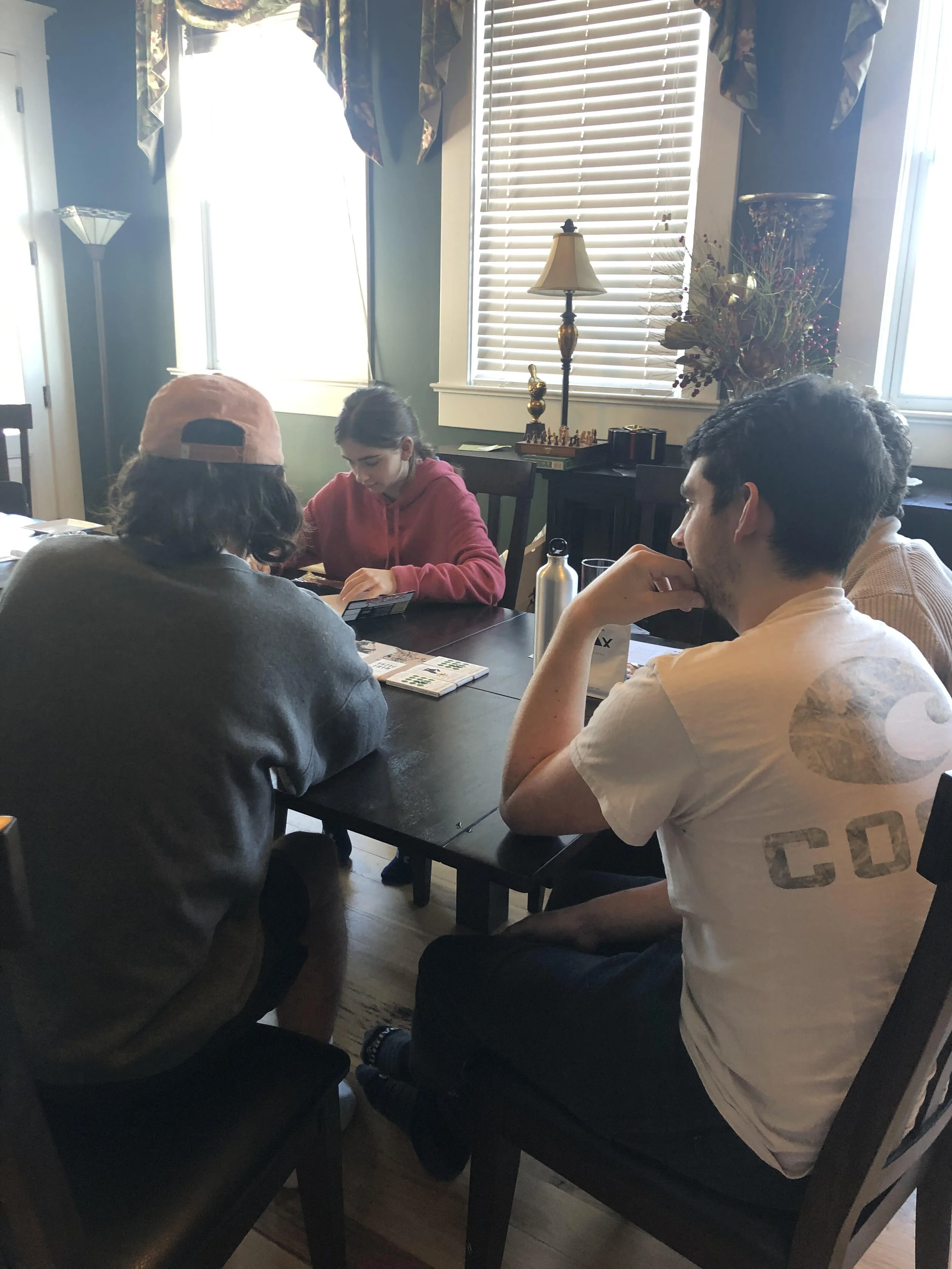Since they couldn’t leave the country as they usually do over the holidays, my daughter Kelly and her husband and four mostly-grown children, all duly tested and quarantined, rented a house for a week a couple of hours away in Virginia. They divided up the days among them, giving each a day to be in charge of activities. On Kelly’s day, they all took a long hike, coming back for a Zoom session with me to talk about poetry.
They’re all smart and accomplished, but like a lot of people, they hardly ever read poetry. It just doesn’t enter their lives naturally. They’ve all read or heard a few of my poems, but, well, my grandfather was a famous economist, but I’ve only read part of one of his books.
In essence, on our Zoom, my task, as I envisioned it, was to take a poem and somehow use it to allude to the whole long noble tradition, somehow give a respectful nod to the vast differences in form and intention, somehow distill the essence so that the sense of a poem doesn’t remain a jumble. Reminds me of my visits to high school classrooms when I was poet laureate of Delaware. Reminds me of how I feel when someone asks me what meditation is all about. Reminds me of my father trying to get my mother to explain why she believed in God.
You can always say something about these things (people certainly have) but you know the something is off the mark. You know that the what needs saying can’t be said. You bumble. Emily Dickinson famously said she knew it was a poem if it took the top of her head off. She didn’t offer a PowerPoint demonstration of how and why that happens.
If it’s doing its work, all we can really say is that the poem knocks us off base. Just as, if meditation is doing its work, it opens into the space beyond (but including) words. If religion is doing its work, it’s unspeakable, awestruck, in the face of the utterly intangible.
I am thinking of how I used to feel on my bike as I shot downhill top speed. Almost out of control but not quite. My stomach floating a little above itself. Not quite fear, but almost. A tenuous control.
Some poems let go of the handlebars. Some poems crash into trees. Some poems hang on for dear life. But still, the essence—this is the best I can come up with—is the sense of being suddenly uprooted, while still hanging on for dear life.
I’ve written about this many times. What I think to say keeps changing. What I think to say now is that we are so boxed in by our concepts, our ego, our certainty that things are as they appear, that it takes some sort of radical (by the root) shift to see the awesome space. To see, as Wallace Stevens’s “Of Modern Poetry,” begins, “The poem of the mind in the act of finding / what will suffice.”
Take two poems and call me in the morning.
Heavens, I wouldn’t want to prescribe poetry as medicine! I wouldn’t want to prescribe it at all. Some people are drawn to become monks, some to meditate, some to photograph birds, some to dance, some to write poems, and some to read poems.
Not to worry. A few people will always catch a glimpse of “beyond,” to use an inaccurate word for want of a better one. Forevermore, they’ll look for the cracks in the structure, to see what else is there.



